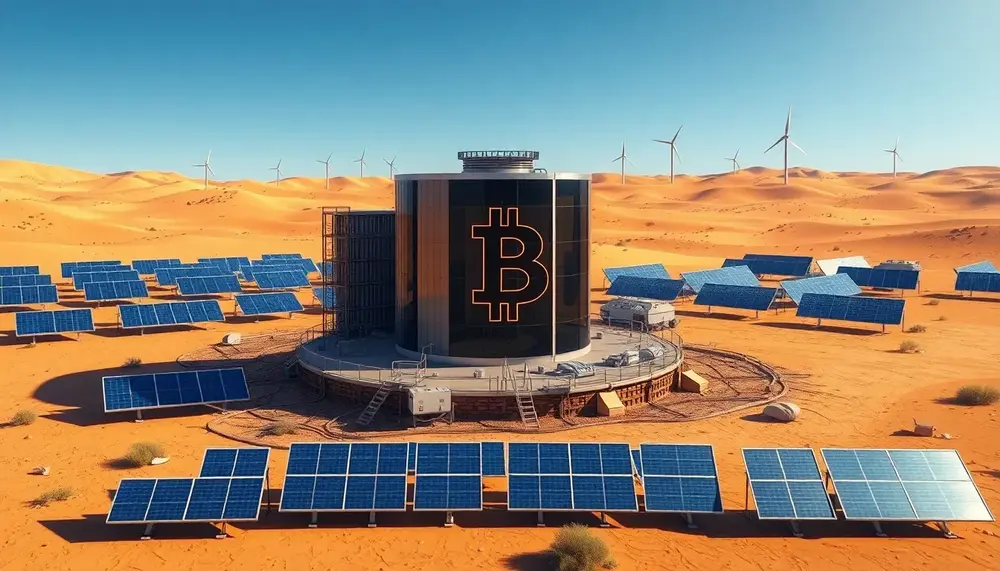Table of Contents:
Bitcoin-Boom: Umweltbelastung und die Zukunft der Kryptowährungen
According to IT BOLTWISE® x Artificial Intelligence, the recent surge in Bitcoin's value has reignited debates about its environmental impact. Bitcoin mining, which relies on the energy-intensive Proof-of-Work process, now consumes up to 2.6% of the total electricity in the United States. This has significant ecological consequences, as much of the energy comes from fossil fuels, leading to increased greenhouse gas emissions and global warming.
Efforts to mitigate these effects include the adoption of renewable energy sources by some mining operations. However, the overall energy demand remains so high that environmental concerns persist. Additionally, the industry generates electronic waste from outdated hardware, further straining environmental resources. Discussions about the future of Bitcoin mining also touch on energy independence, national security, and economic stability, with calls for regulatory measures to promote sustainability.
Get $500 free Bitcoin mining for a free testing phase:
- Real daily rewards
- 1 full month of testing
- No strings attached
If you choose to buy after testing, you can keep your mining rewards and receive up to 20% bonus on top.
“This is not just about the environment; it’s about creating a stable and secure economic future,” experts argue.
| Key Issues | Details |
|---|---|
| Energy Consumption | 2.6% of total U.S. electricity |
| Environmental Impact | Increased CO2 emissions and electronic waste |
| Proposed Solutions | Use of renewable energy and regulatory measures |
Summary: Bitcoin mining's environmental impact is a pressing issue, consuming 2.6% of U.S. electricity and contributing to CO2 emissions. Renewable energy adoption and regulatory actions are proposed solutions.
Pakistan Utilizes Surplus Energy for Bitcoin Mining
As reported by IT BOLTWISE® x Artificial Intelligence, Pakistan is taking a bold step by proposing the use of surplus energy for Bitcoin mining. This initiative, introduced by the Pakistan Crypto Council during its first meeting on March 21, aims to attract foreign investments and position Pakistan as a cryptocurrency hub. The meeting included key figures such as the Governor of the State Bank of Pakistan and the Federal Minister for Information Technology.
Senator Muhammad Aurangzeb expressed optimism, stating, “This is the beginning of a new digital chapter for our economy.” This marks a significant shift in Pakistan's stance on cryptocurrencies, as the government had previously declared them illegal. The new approach aligns with global trends, such as the United States' regulatory advancements under the Trump administration, which included the establishment of a strategic Bitcoin reserve.
- Objective: Attract foreign investments and establish Pakistan as a crypto hub.
- Key Participants: State Bank Governor, SECP Chairman, IT Minister.
- Regulatory Shift: From banning cryptocurrencies to legalizing them.
Summary: Pakistan plans to use surplus energy for Bitcoin mining, aiming to attract investments and redefine its stance on cryptocurrencies. This initiative could position the country as a leader in emerging technologies.
Sources:
















